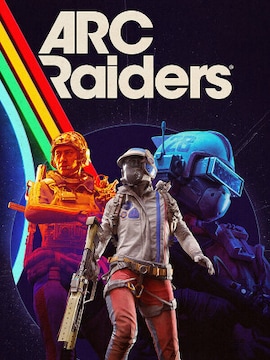A gaming PC running Linux used to be something only hobbyists dared to try. But in 2025, that reputation has changed completely. Linux is no longer a side project or a tech experiment, it has turned into a stable, reliable platform built for real gaming.
- The State of Linux Gaming in 2025
- Installing and Setting Up Steam with Proton
- Running GOG Games with Lutris and Wine
- Install a GOG Game
- Installing and Configuring Wine for Non Steam and Non GOG Games
- Extra Tools for Linux Gaming
- Install GPU Drivers
- NVIDIA
- AMD
- Example AAA Games on Linux
- Differences Between Ubuntu and Linux Mint
- Drivers Overview
- Performance and Optimizations
- Graphics Settings
- System Housekeeping
- Final Thoughts
Month after month, more players are discovering that they can enjoy modern titles, use popular launchers, and fine tune performance without ever needing Windows.
This guide shows you how to set up a modern Linux gaming system from Steam and Proton to GOG, Epic Games, drivers, and optimization tools.
The State of Linux Gaming in 2025
Steam’s October survey shows how far things have come. Linux now makes up over 3 percent of all Steam users, the highest number ever recorded. That jump comes largely from the Steam Deck, which brought Linux gaming to a much wider crowd, and from steady improvements to Steam Play with Proton. Proton translates Windows games so they run smoothly on Linux using Vulkan and other advanced layers. Wine and DXVK keep improving too, helping convert DirectX calls with solid performance.
Community data from sources like ProtonDB and reporting from BoilingSteam show that roughly 90 percent of tested Windows games are playable on Linux today. That does not mean every title runs perfectly, because games with kernel level anti cheat still refuse to launch, but the overwhelming majority of single player games and many online titles now work without issues. For the first time, switching to Linux for gaming is not just possible, it is practical, efficient, and user friendly.
You can play new AAA games, manage libraries from multiple stores, and tune performance like a PC enthusiast.
Installing and Setting Up Steam with Proton
Steam is the core of Linux gaming. With Proton included, most Windows games launch without any manual configuration.
Enable Multiverse and Restricted Repositories (Ubuntu)
These repositories provide additional packages needed for Steam and GPU support:
sudo add-apt-repository multiverse
sudo add-apt-repository restricted
sudo apt update
Install Steam
sudo apt install steam
Ubuntu users can also use Snap:
sudo snap install steam
Note: Snap may have limited support for certain games compared to Flatpak or native APT installations.
On Linux Mint, Snap is disabled by default, so use APT or Flatpak instead.
Launch Steam and Sign In
On first launch, Steam downloads the latest client updates.
Enable Proton for All Titles
Go to: Settings → Steam Play → Enable Steam Play for all titles → Select the newest Proton release
Proton is Valve’s customized version of Wine optimized for gaming. Many players also install Proton GE for improved compatibility with newer or more demanding games.
Install ProtonUp Qt to Install Proton GE
flatpak install flathub net.davidotek.pupgui2
Check Installed Proton Versions
ls ~/.steam/steam/steamapps/compatibilitytools.d/
Once configured, Steam can run most Windows games as if they were made for Linux.
Running GOG Games with Lutris and Wine
Lutris is a universal launcher for GOG games, emulators, legacy titles, Ubisoft Connect, Battle.net, and other platforms.
Install Lutris
sudo add-apt-repository ppa:lutris-team/lutris
sudo apt update
sudo apt install lutris
Or install via Flatpak to get the latest version:
flatpak install flathub net.lutris.Lutris
Set Up Lutris
Open the app and log in if desired. Lutris offers automated install scripts that configure Wine, DXVK, and system libraries for specific games.
Install a GOG Game
- Click “ ”
- Choose Add Game
- Select Wine or Proton as the runner
- Point to your .exe installer
Lutris creates a dedicated Wine prefix and tweaks libraries for best performance.
Tip: Games like Cyberpunk 2077 often run best with Wine GE builds. If using Heroic, add for mod support:
WINEDLLOVERRIDES=winmm=n,b
Installing and Configuring Wine for Non Steam and Non GOG Games
Wine allows you to run Windows launchers and individual .exe files.
Enable 32 Bit Architecture
sudo dpkg –add-architecture i386
Add the WineHQ Repository
sudo mkdir -p /etc/apt/keyrings
sudo wget -O /etc/apt/keyrings/winehq.key https://dl.winehq.org/wine-builds/winehq.key
sudo wget -NP /etc/apt/sources.list.d/ https://dl.winehq.org/wine-builds/ubuntu/dists/jammy/winehq-jammy.sources
sudo apt update
Install Wine Stable
sudo apt install –install-recommends winehq-stable
Configure Wine
winecfg
The first startup creates the .wine folder and installs necessary components. You can set a virtual desktop mode or adjust graphics and audio backend settings here.
Run Windows Programs
wine game-installer.exe
Extra Tools for Linux Gaming
- Proton GE for community enhanced Proton builds
- Heroic Games Launcher for Epic, GOG, and Amazon titles
- Bottles for optimized Wine environments
- GameMode to automatically boost system performance during gaming
Install GameMode
sudo apt install gamemode
- DXVK and VKD3D to translate DirectX 9, 10, 11, 12 to Vulkan
Install DXVK
sudo apt install dxvk
- MangoHud for an on-screen FPS and performance overlay
Installing Flatpak and Flathub
- sudo apt install flatpak
- flatpak remote-add –if-not-exists flathub
- https://flathub.org/repo/flathub.flatpakrepo
Install Heroic Games Launcher
flatpak install flathub com.heroicgameslauncher.hgl
Install ProtonUp Qt
flatpak install flathub net.davidotek.pupgui2
Install Bottles
flatpak install flathub com.usebottles.bottles
Install GPU Drivers
NVIDIA
On Ubuntu:
sudo ubuntu-drivers autoinstall
Or use GUI via Additional Drivers.
On Linux Mint:
Open Driver Manager and select the recommended proprietary NVIDIA driver (535).
AMD
Install Vulkan drivers:
sudo apt install mesa-vulkan-drivers mesa-vulkan-drivers:i386
Update Mesa for modern GPUs:
sudo add-apt-repository ppa:kisak/kisak-mesa
sudo apt update && sudo apt full-upgrade
For bleeding edge hardware, the Oibaf PPA provides experimental Mesa builds:
sudo add-apt-repository ppa:oibaf/graphics-drivers
sudo apt update && sudo apt upgrade
AMD uses open Mesa drivers, which offer excellent performance and compatibility.
Example AAA Games on Linux
- Cyberpunk 2077 (Proton, add –launcher-skip)
- The Witcher 3: Wild Hunt (native and Proton)
- Metro Exodus (native)
- Control, Resident Evil 8: Village, Shadow of the Tomb Raider (native and Proton)
- Grand Theft Auto V, Assassin’s Creed: Valhalla, Borderlands 3 (Proton)
- Death Stranding, HITMAN 3, Far Cry 6 (Proton)
Games with kernel level anti cheat like Valorant still do not run. Check ProtonDB before purchasing multiplayer titles.
Differences Between Ubuntu and Linux Mint
Ubuntu and Linux Mint share the same base, but they offer two different philosophies. Mint uses Cinnamon and Xorg by default, delivering a classic desktop experience that feels familiar to Windows users. Ubuntu uses GNOME and encourages Wayland, which provides a modern UI and smoother rendering on supported systems.
Mint disables Snap out of the box, encouraging APT and Flatpak instead, while Ubuntu integrates Snap as a core part of the system. Mint repositories may contain older versions of gaming software, so Flatpak is the recommended method for installing tools like Lutris.
Both are excellent gaming choices, but Mint tends to feel more traditional, while Ubuntu pushes newer tech stacks.
Drivers Overview
- NVIDIA uses proprietary drivers installed through ubuntu-drivers or GUI tools
- AMD uses open Mesa drivers
- Enthusiasts can install updated Mesa PPAs for maximum performance
Performance and Optimizations
To maximize gaming performance on Linux:
- Use GameMode: gamemoderun %command% for improved CPU scheduling
- Rely on DXVK and VKD3D for enhanced DirectX performance
- Disable compositor or VSync if you notice micro stutter
- Use MangoHud: mangohud %command% to track FPS and system load
- Set the CPU governor to Performance mode
- Fix audio crackling with PULSE_LATENCY_MSEC=60
- Always verify anti cheat compatibility before buying competitive games
Graphics Settings
- Enable FSR, DLSS, or XeSS depending on your GPU
- Adjust heavy post processing effects if FPS drops
- Use Performance mode in GPU tools for consistent boost clocks
System Housekeeping
sudo apt update && sudo apt upgrade -y && sudo apt autoremove
Final Thoughts
Linux gaming is no longer experimental. With tools like Proton, Wine, Lutris, Heroic, and open source drivers, you can run thousands of games without touching Windows. Whether you want to ditch Windows completely or just keep Linux as a second option, it is ready.
If you want the smoothest setup, Steam with Proton is the easiest choice. If you use Epic, GOG, or multiple stores, Lutris and Heroic get the job done too. You have options, and they all work.




